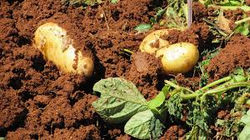
Agricultural Economics

Agricultural economics, study of the allocation, distribution, and utilization of the resources used, along with the commodities produced, by farming. Agricultural economics plays a role in the economics of development, for a continuous level of farm surplus is one of the wellsprings of technological and commercial growth.
In general, one can say that when a large fraction of a country’s population depends on agriculture for its livelihood, average incomes are low. That does not mean that a country is poor because most of its population is engaged in agriculture; it is closer to the truth to say that because a country is poor, most of its people must rely upon agriculture for a living.
Agricultural economics, study of the allocation, distribution, and utilization of the resources used, along with the commodities produced, by farming. Agricultural economics plays a role in the economics of development, for a continuous level of farm surplus is one of the wellsprings of technological and commercial growth.
In general, one can say that when a large fraction of a country’s population depends on agriculture for its livelihood, average incomes are low. That does not mean that a country is poor because most of its population is engaged in agriculture; it is closer to the truth to say that because a country is poor, most of its people must rely upon agriculture for a living.
Agriculture And Economic Development
As a country develops economically, the relative importance of agriculture declines. The primary reason for that was shown by the 19th-century German statistician Ernst Engel, who discovered that as incomes increase, the proportion of income spent on food declines. For example, if a family’s income were to increase by 100 percent, the amount it would spend on food might increase by 60 percent; if formerly its expenditures on food had been 50 percent of its budget, after the increase they would amount to only 40 percent of its budget. It follows that as incomes increase, a smaller fraction of the total resources of society is required to produce the amount of food demanded by the population.
 |
|---|
 |
 |
 |
 |
 |
|---|
 |
 |
 |
 |
 |
